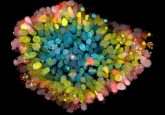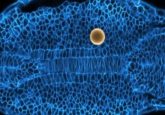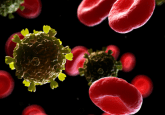Fisetin: a drug to combat the aging process?

Fisetin, a naturally-occurring chemical, has been identified as having anti-aging benefits, assisting the clearance of damaged, senescent cells.

Recent research conducted in a collaboration between the University of Minnesota Medical School (UMM; MN, USA) and Mayo Clinic (MN, USA), and led by Paul Robins and Laura Neidernhofer (both UMM), which set out to identify novel and effective approaches to improve the health of the aging population, has produced some promising results. Fisetin, a chemical present in various fruits and vegetables, appears to improve the quality of health and increase lifespan when tested on mice.
Aging is due, in part, to the accumulation of damaged, senescent cells that are normally cleared by a healthy immune system. As a person ages and their immune system becomes less efficient, these damaged cells begin to build up and the inflammatory signals and enzymes that they release to label themselves for apoptosis lead to continued low-level inflammation and tissue degradation.
The researchers studied the properties of Fisetin by administering it to aging mice and monitoring their life-spans and levels of the senescent cells present. Further analysis was conducted by mass cytometry to ensure results were specific to the senescent cells, monitoring the overall impact of the Fisetin on different cells of the body, an approach that is unique to this study.
The results displayed a clear reduction in the level of senescent cells in the body and an increased life-span and quality of health, for the mice receiving the Fisetin. Furthermore, the effects of the Fisetin were found to be specific to the target senescent cells.
“These results suggest that we can extend the period of health, termed health span, even towards the end of life,” explained Robbins, later adding that: “in addition to showing that the drug works, this is the first demonstration that shows the effects of the drug on specific subsets of these damaged cells within a given tissue.”
The next step for this research is to translate the study to a human model to safely study Fisetin’s effects on people. With the population continuing to grow older and live longer, the potential for this research to improve people’s quality of life into old age is of vital importance to our society.





